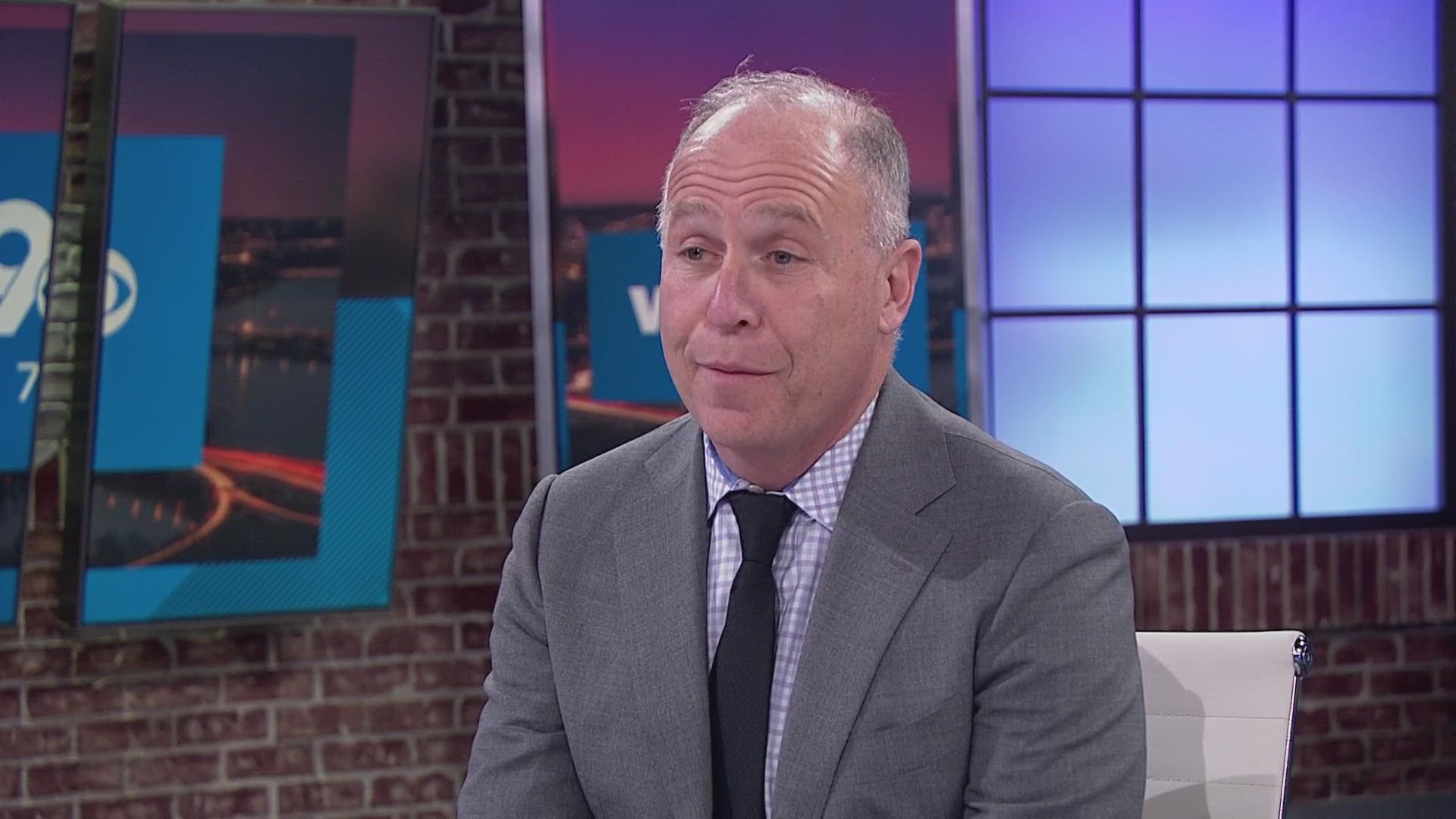WASHINGTON — It would take 60 senators to end the debate and move forward on a measure that would advance a bill on DC Statehood. It only takes 51 senators, however, to overturn a measure passed by DC's City Council.
That looms as a very distinct possibility as Senator Rand Paul (R-KY) became the 49th and final Republican Senator to announce support for a 'resolution of disapproval' of D.C.'s new 'Revised Criminal Code Act of 2022.'
Typical legislation in the Senate needs to meet a 60-vote threshold in order to close debate and advance to a vote. The resolution regarding D.C.'s Criminal Code Act, however, does not need to withstand that benchmark. Once the measure is brought to the Senate floor and following a maximum of 10 hours of debate, it can pass with a simple majority of fifty-one senators voting 'Yes.'
"I'm not 'bigfooting' the DC City Council '. They've, in essence, bigfooted their own Mayor. Mayor Bowser vetoed this. They overrode the veto," said Senator Bill Hagerty (R-TN) who is the lead sponsor of the 'Resolution of Disapproval'. "I think what they're trying to do is send some sort of woke signaling to the world, but they're putting the residents of D.C. at greater risk of harm."
The House of Representatives passed two 'Resolutions of Disapproval' last week; one dealing with D.C.'s revised criminal code and the other dealing with a voting rights act that would give undocumented residents the power to vote in local elections.
Thirty-one Democrats crossed party lines and voted with the GOP on the criminal code measure and forty-two Democrats voted to disapprove of the voting rights measure.
Senator Hagerty is confident he will be able to convince at least two Democrat senators to cross the aisle and support his measure. Particularly vulnerable Democrats include those running for reelection in 2024, according to sources.
"I'm feeling very good about it because it's a common-sense measure. It shouldn't be a partisan measure and the House supported it on a non-partisan basis," said Sen Hagerty.
Senate passage would set up the first possible veto of the Biden presidency. The White House has signaled it would veto the measure but has not flat-out threatened to do so.
"This taxation without representation and denial of self-governance is an affront to the democratic values on which our Nation was founded. (The 'resolutions of disapproval') are both clear examples of how the District of Columbia continues to be denied true self-governance and why it deserves statehood," read a recent White House statement.
"While we work towards making Washington, D.C. the 51st state of our Union, Congress should respect the District of Columbia’s autonomy to govern its own local affairs."
Capitol Hill staffers indicate President Biden would open himself up to criticism as potentially soft on crime if he vetoed the measure.
"I think he's going to have to think very hard about the message he would send were he to veto this," said Senator Hagerty. "I really would be surprised if he were to do it."
All four members of the Virginia and Maryland senate delegation weighed in on the debate.
“I strongly support home rule for the District of Columbia and will vote against the resolutions of disapproval slinking their way over from the House of Representatives," said Senator Ben Cardin (D-MD)
Also slamming the door on this resolution was Senator Chris Van Hollen (D-MD).
“Congress shouldn’t be bigfooting decisions made by the elected representatives of the people of the District. Period,” said Van Hollen.
Virginia's two senators were less rigid in their responses.
“While I haven’t reviewed these specific resolutions yet, I tend to think it would take a pretty exceptional circumstance for Congress to overturn decisions made by D.C.’s elected officials,” said Senator Mark Warner (D-VA)
Senator Tim Kaine (D-VA) is running for reelection in 2024 and staff pointed to an interview he gave last week.
"The desires of the Mayor and the DC City Council will be given a lot of deference in the Senate," said Kaine.
The DC Home Rule Act gives Congress 60 days to act with respect to a proposed change for D.C.'s criminal code. If the Senate takes no action by midnight on May 11 the law would go into effect automatically.
As for the 'resolution of disapproval' concerning D.C.'s Voting Rights Amendment Act, that faces a tougher route through the Senate because it would have to be voted out of a Democrat-controlled Senate Committee, the Homeland Security and Government Affairs Committee (HSGAC) which, sources say, is highly unlikely.
That bill is also subject to a shorter window of time for Senate action to stop the measure. If the Senate takes no action by midnight on March 7, the law will automatically take effect.

